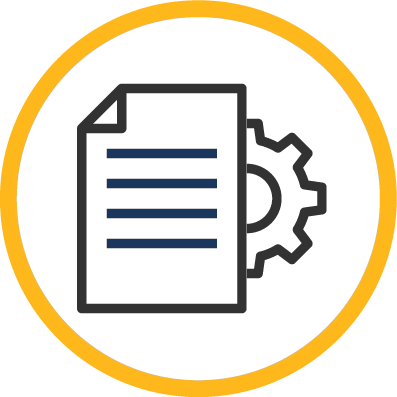Get ready for work
While every workplace is different, there are rights and responsibilities that apply to all employees.
Find out what to ask, what you’re entitled to, what’s expected of you and how to prepare for your first day.
On this page:
Be informed
Start your new job with confidence and find out important information from your employer as soon as possible. This includes:
- your pay rate
- whether you’re a full-time, part-time or casual employee
- your hours of work
- what your job duties will be
- whether there’s an award or registered agreement that covers your job
- your classification level under your award or agreement
- if there's a probation period for your job.
Check out what else you need to know on our Before starting employment page.
What to do if you have a question
If you have a question about your work or a workplace issue, we encourage you to speak to your employer about it first. Most problems in the workplace happen when there is a lack of awareness. See Know your rights and obligations for tools and resources to build up your knowledge.
You may feel a little awkward or nervous to bring up these topics with your new employer. We have tools that can help you.
 Online course
Online course
Our Starting a new job online course has practical advice, videos, activities and real-life scenarios to prepare you for your first day. Bust some common workplace myths and find out:
- what your rights are
- what questions to ask and how to ask them
- what employers expect from you in the workplace.
What is an award?
An award is a legal document that sets out the minimum pay rates and employment conditions. There are different awards for different types of industries and occupations.
Awards also include job classifications that explain what level an employee is working at, depending on the type of duties they perform. Knowing your job classification will help you understand what you should be paid. Find more information on our Award classifications page.
If you’re not sure which award applies to you, check out Find my award.
 Example: Which award applies?
Example: Which award applies?
Ali is 16 and just got a job as a barista in a café. Her older sister, Melanie, works as a barista for a catering company. Melanie gets her pay rates and work entitlements from the Hospitality Award, and Ali assumes that she will too. However, Ali’s new employer tells her she’ll be covered by the Restaurant Award.
Ali checks the Restaurant Award online. She finds the coverage clause and sees that the award covers employers in the restaurant industry, which includes cafés, and their employees who fall within certain classifications. She also checks the classification list and sees the work she will do as a barista is covered there. She also goes to our website and uses our Find my award tool, which confirms that she will be covered by the Restaurant Award.
 Example: Which job classification applies in an award?
Example: Which job classification applies in an award?
Bridget works in a clothing store. As part of her duties, she opens and closes the store and supervises junior sales assistants.
Bridget’s employer pays Bridget as a Level 2 employee under the Retail Award. However, Bridget reads the classification descriptions in the award and notices that some of the duties she performs are listed under Level 3. She also looks at the Award classifications page on our website. After reading the page, she thinks Level 3 is more appropriate for her work.
Bridget shows the award to her employer, who agrees to pay her as a Level 3 retail employee. This is because Bridget works at a higher level than a Level 2 employee, and she’s required to provide supervisory assistance to the shop manager, as well as open and close the store.
What is a registered agreement?
A registered agreement is a document between an employer and their employees about employment conditions. An agreement must be approved by the Fair Work Commission.
An agreement will generally override any award that would otherwise apply, but it still needs to meet the base pay rates in the award.
You can ask your employer if you are covered by an enterprise agreement or other registered agreement. You can also search for an agreement on the Fair Work Commission’s website.
Know your rights
What are the National Employment Standards?
As an employee, you’re entitled to minimum workplace rights, including the National Employment Standards (NES) and minimum wage. These are compulsory entitlements that your employer must give you.
The NES covers things like:
- maximum weekly hours
- different types of leave
- public holidays
- requirements for notice if your employment ends.
These entitlements will vary depending on whether you’re a full-time, part-time or casual employee.
Under the NES, your new employer has to give you a Fair Work Information Statement.
If you’re employed as a casual, your new employer also has to give you a Casual Employment Information Statement.
Find out more about your rights under the NES on our National Employment Standards page.
Look out for warning signs
Watch our video about warning signs in the workplace so you know when things aren’t right.
What if I’m asked to do a job trial?
Before starting a new job, you might be asked to do a trial shift to see if you have the skills for the job you’ve applied for. This should be made clear before you start the trial.
In some circumstances, unpaid trials are okay. Find more information, and check out some examples, on our Unpaid trials page.
Know your responsibilities
A new job comes with new responsibilities and expectations. Your employer will expect that you:
- perform the duties of your job
- are punctual and reliable
- follow workplaces policies, procedures and health and safety rules.
 Tip
Tip
Check with your employer to see how you’re going and if there are ways to improve your work.
Prepare for your first day on the job
The first day of a new job can be overwhelming. To help you transition into your new job, check with your employer:
- where you need to go, and how and when to get there
- the dress code for your job
- whether there's any paperwork you need to complete
- who your supervisor is.
 Guides and checklists
Guides and checklists
- A guide to starting a new job A guide to starting a new job – Read more about your rights and entitlements, pay, paperwork, things to look out for and advice for your first day.
- Tips on starting a new job – Watch our video on talking money, filling out your paperwork, knowing your hours of work, break entitlements, asking questions and giving notice.
Have a workplace problem?
Problems can happen in any workplace.
To have a productive and peaceful work environment, it's important to prevent problems from happening in the first place.
Check out our Preventing workplace problems page for more details.
If you already have a workplace problem, use our tools and information to help you resolve it.
Check out our Fixing a workplace problem section for practical information about:
- working out if there is a problem
- speaking with your employer or employee about fixing the problem
- getting help from us if you can't fix the problem.